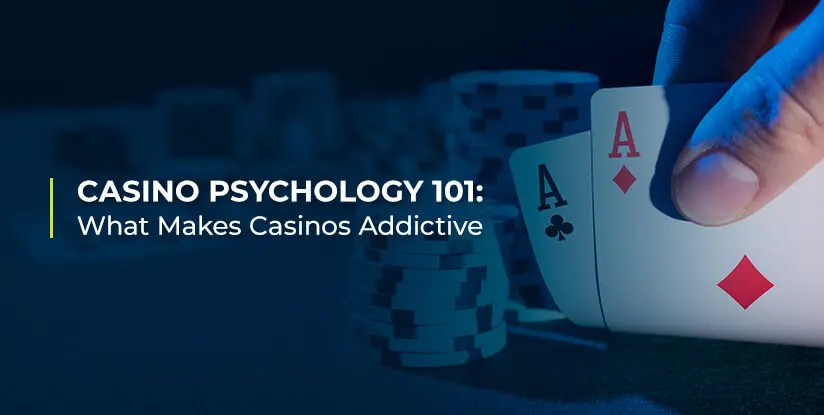Online slots have become one of the most popular forms of gambling worldwide. Whether it’s the thrill of hitting a jackpot or the simple excitement of spinning the reels, slot games can be incredibly engaging. However, the very features that make online slots exciting are also the same ones that can contribute to their addictive nature. In this post, we’ll explore the psychology behind online slots, examine the role of sound, visuals, and rewards in keeping players engaged, and provide strategies for controlling gaming habits to avoid falling into the trap of addiction.
How Slot Machines Are Designed to Keep Players Engaged
At first glance, online slots might seem like a simple game of luck — you spin the reels, wait for symbols to line up, and hopefully win a payout. But in reality, slots are carefully designed to keep you playing. From the game mechanics to the user interface, every detail is optimized to maximize engagement and, in some cases, trigger addictive behavior. Here’s how they work:
1. Randomness and Unpredictability
- One of the main factors that make slot games so exciting (and potentially addictive) is the randomness of the outcome. Every spin is independent, determined by an algorithm (RNG) that generates random results. This unpredictability creates an element of suspense and anticipation that keeps players engaged.
- Players never know when a win is coming, which makes each spin feel potentially life-changing. The idea of hitting a big win (like a jackpot) on the next spin can keep players going for hours.
2. Near Misses
- Online slots are engineered to make players feel as though they’re “close” to winning, even when they’re not. This is known as a near miss. For example, a player might land two jackpot symbols on a payline, only to fall short of the third symbol. Although the spin was technically a loss, the feeling of being close to a win can trigger the brain’s reward system and compel players to spin again.
- Near misses play into the concept of “variable reinforcement” — a psychological principle where rewards are given unpredictably, creating a sense of excitement and anticipation. This type of reinforcement can make it harder for players to stop playing, as they’re chasing the thrill of that elusive big win.
3. Small Wins and Frequent Payouts
- Many modern slot machines are designed to deliver small, frequent wins rather than big payouts. These small wins can create a positive reinforcement loop, encouraging players to continue playing because they feel like they’re making progress or winning more often.
- This constant payout cycle can keep players engaged for longer periods, even though they’re not making substantial profits. It’s an illusion of success that keeps the excitement alive and makes it harder to stop.
The Role of Sound, Visuals, and Rewards in Slot Addiction
Slot machines use a variety of sensory elements — sound, visuals, and rewards — to create an immersive and emotionally engaging experience. Let’s break down how each of these elements contributes to the addictive nature of online slots:
1. Sound Effects and Music
- Sound is one of the most powerful tools used by online slots to influence player behavior. The sound effects (such as bells, chimes, or celebratory jingles) that play when a player hits a win are specifically designed to trigger a sense of pleasure and reinforce the action.
- High-pitched sounds, in particular, can stimulate the dopamine system in the brain, making players feel excited and rewarded. In some cases, these sounds can even lead to players feeling a rush of euphoria, encouraging them to continue playing.
- Music is also carefully selected to maintain a high-energy atmosphere, keeping players immersed in the game. It’s designed to encourage prolonged play by creating an emotional connection to the experience.
2. Visuals and Animation
- Bright colors, flashy animations, and vivid graphics all contribute to the psychological draw of online slots. These visual elements are intentionally overstimulating to keep players’ attention fixed on the game. As a result, they create a hypnotic effect, where the player becomes absorbed in the experience.
- Winning animations, such as spinning reels or flashing lights, are often exaggerated to make even small wins feel rewarding. This constant stream of visual feedback reinforces the desire to keep playing, even if the payout is minimal.
3. Rewards and Bonuses
- Slot games often feature bonus rounds, free spins, and multipliers, which enhance the reward experience. These bonuses are designed to offer players the possibility of big rewards without risking much additional money. The promise of a bonus round creates a feeling of hope, and players are motivated to keep playing in anticipation of hitting these bonus features.
- Bonus games also break up the gameplay and provide additional excitement, keeping players engaged for longer periods. However, the fact that bonus rounds are often hard to trigger or require certain conditions to be met adds to the anticipation and can lead to players spending more time and money in pursuit of these special features.

Strategies for Controlling Your Gaming Habits
While online slots can be fun and exciting, it’s important to recognize when the game is no longer just entertainment and becomes a problem. The key to responsible gaming lies in self-awareness and control. Here are some strategies to help you manage your gaming habits:
1. Set Time Limits
- It’s easy to lose track of time when playing online slots. One way to ensure you’re not spending too much time gambling is to set a timer before you start playing. When the timer goes off, take a break or stop playing entirely.
- Some online casinos allow you to set session limits, which can help you keep track of how much time you’ve spent playing.
2. Set Money Limits
- One of the most effective ways to control your spending is to set deposit limits or spending caps. This way, you’ll only be able to gamble a predetermined amount, helping to prevent excessive losses.
- Many casinos offer features like deposit limits, loss limits, or bet limits, which allow you to manage how much you can spend in a given period.
3. Avoid Chasing Losses
- One of the biggest mistakes players make is trying to “chase” their losses by continuing to play after losing money, in hopes of recovering their losses with a big win. This behavior is a common sign of gambling addiction.
- If you find yourself trying to recover lost money, it’s important to take a step back and reassess your approach. Set a limit for how much you’re willing to lose in a session and walk away once you hit that limit.
4. Use Self-Exclusion Tools
- If you find that your gambling habits are becoming problematic, consider using self-exclusion tools offered by most online casinos. These tools allow you to temporarily or permanently block your access to gambling sites, giving you a break from playing and helping to prevent compulsive gambling.
Conclusion
The psychology behind online slots is complex, involving elements of chance, near misses, small rewards, and immersive sensory feedback. These features are carefully designed to keep players engaged, sometimes leading to addictive behavior. Understanding the psychological triggers that make slots so appealing can help you make more informed decisions about when to play and when to stop.
To prevent online slots from becoming a problem, it’s crucial to set time and money limits, avoid chasing losses, and use available tools like self-exclusion if needed. By being mindful of how online slots are designed to engage players, you can ensure that you’re playing responsibly and enjoying the entertainment value they offer, without falling into the trap of addiction.
Remember, gambling should always be fun, so play smart and set limits to keep the experience enjoyable!
